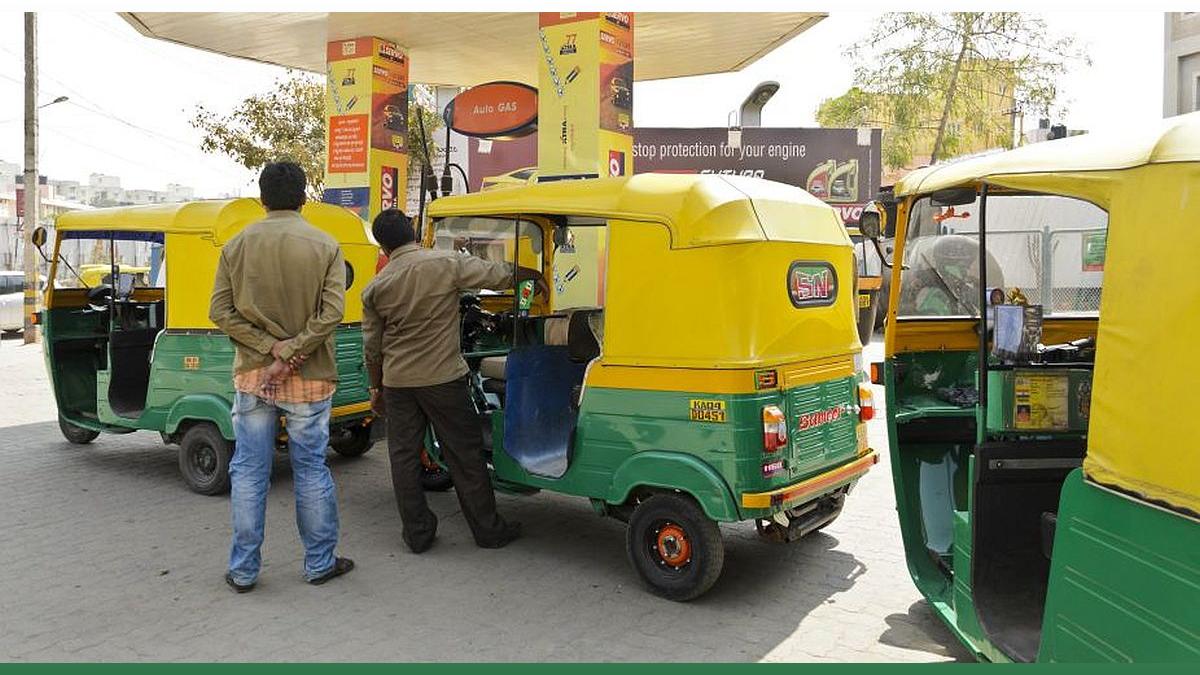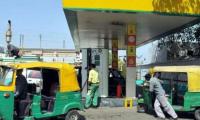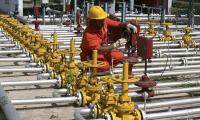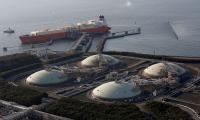City Gas Costs to Rise by Rs 2-3/kg Due to Lower APM Gas Allocation: Crisil
City gas distribution companies in India are facing a rise in procurement costs due to reduced APM gas allocation. Crisil estimates the cost increase to be around Rs 2-3 per kg, impacting CNG prices.

New Delhi, Oct 23 (PTI) The gas procurement cost of city gas distribution (CGD) companies is set to rise by Rs 2-3 per kilogram (kg) following a reduction in allocation of input natural gas under the administered price mechanism (APM), rating agency Crisil said Wednesday.
City gas operators get priority gas allocation at reduced prices under APM from legacy gas fields for the domestic compressed natural gas (CNG) and piped natural gas (PNG) - domestic segments.
As per recent public announcements by these companies, GAIL (India) Ltd, the nodal agency for domestic gas allocation in the country, has reduced the APM gas allocation for the CNG segment by 20 per cent of their CNG requirement, effective October 16, 2024.
"To note, APM allocation for CGD players will now be reduced to about 50 per cent of their CNG requirement, from the allocation level of around 70 per cent this fiscal year so far," Crisil said in a note.
So, to maintain adequate supply, the CGD players will need to procure gas from costlier sources such as domestic high pressure, high temperature (HPHT) gas fields or imported liquefied natural gas (LNG).
Says Ankit Hakhu, Director at CRISIL Ratings, "Against the current APM gas prices of USD 6.5 per metric million British thermal unit (MMBtu), HPHT gas prices are USD 9.5 per MMBtu and LNG prices are USD 11-12 per MMBtu. This means the cost of input gas for the CNG segment of CGD players is likely to increase by Rs 3.5-4.5 per kg. However, given that the share of CNG in overall CGD segment is around 60 per cent, the overall cost of gas procurement may rise by Rs 2-3 per kg for industry players."
To maintain profit margins, CNG selling price may also rise as players are likely to pass through the increased cost pressure to consumers, although in a gradual manner, in the coming months. Some players have already undertaken partial increase in CNG prices.
This trend has been demonstrated in past years as well, including fiscal 2023, when gas prices had shot up amid a geopolitical crisis in the wake of the Russia-Ukraine conflict. However, these hikes were partial and have also witnessed some lag effect.
Says Ankush Tyagi, Associate Director at CRISIL Ratings, "Despite the expected increase in prices, the competitiveness of CNG3 as a transportation fuel over alternatives such as petrol or diesel will remain healthy at 25 per cent against 30 per cent prior to the price hike. This should limit any material impact of the price hike on the volume growth of CNG sales over the medium term. Further, the likely pass-through of cost increase will support operating profitability and in turn the credit profiles of CGD players."
Legacy fields include oil and gas fields that were given on a nomination basis to Oil and Natural Gas Corporation (ONGC) and Oil India Ltd prior to 1999.
Also, the share of CNG in total CGD volume is 55-60 per cent, that of piped cooking gas is 8-10 per cent, while the rest is from piped gas supplies to industries and commercial use.
City gas operators get priority gas allocation at reduced prices under APM from legacy gas fields for the domestic compressed natural gas (CNG) and piped natural gas (PNG) - domestic segments.
As per recent public announcements by these companies, GAIL (India) Ltd, the nodal agency for domestic gas allocation in the country, has reduced the APM gas allocation for the CNG segment by 20 per cent of their CNG requirement, effective October 16, 2024.
"To note, APM allocation for CGD players will now be reduced to about 50 per cent of their CNG requirement, from the allocation level of around 70 per cent this fiscal year so far," Crisil said in a note.
So, to maintain adequate supply, the CGD players will need to procure gas from costlier sources such as domestic high pressure, high temperature (HPHT) gas fields or imported liquefied natural gas (LNG).
Says Ankit Hakhu, Director at CRISIL Ratings, "Against the current APM gas prices of USD 6.5 per metric million British thermal unit (MMBtu), HPHT gas prices are USD 9.5 per MMBtu and LNG prices are USD 11-12 per MMBtu. This means the cost of input gas for the CNG segment of CGD players is likely to increase by Rs 3.5-4.5 per kg. However, given that the share of CNG in overall CGD segment is around 60 per cent, the overall cost of gas procurement may rise by Rs 2-3 per kg for industry players."
To maintain profit margins, CNG selling price may also rise as players are likely to pass through the increased cost pressure to consumers, although in a gradual manner, in the coming months. Some players have already undertaken partial increase in CNG prices.
This trend has been demonstrated in past years as well, including fiscal 2023, when gas prices had shot up amid a geopolitical crisis in the wake of the Russia-Ukraine conflict. However, these hikes were partial and have also witnessed some lag effect.
Says Ankush Tyagi, Associate Director at CRISIL Ratings, "Despite the expected increase in prices, the competitiveness of CNG3 as a transportation fuel over alternatives such as petrol or diesel will remain healthy at 25 per cent against 30 per cent prior to the price hike. This should limit any material impact of the price hike on the volume growth of CNG sales over the medium term. Further, the likely pass-through of cost increase will support operating profitability and in turn the credit profiles of CGD players."
Legacy fields include oil and gas fields that were given on a nomination basis to Oil and Natural Gas Corporation (ONGC) and Oil India Ltd prior to 1999.
Also, the share of CNG in total CGD volume is 55-60 per cent, that of piped cooking gas is 8-10 per cent, while the rest is from piped gas supplies to industries and commercial use.
You May Like To Read
TODAY'S MOST TRADED COMPANIES
- Company Name
- Price
- Volume
- Vodafone-Idea-L
- 11.65 (+ 3.56)
- 106772451
- Alstone-Textiles
- 0.28 ( -3.45)
- 44187760
- Mangalam-Industrial
- 0.88 ( -2.22)
- 39177573
- Sunshine-Capital
- 0.27 (+ 3.85)
- 35956340
- GMR-Airports
- 104.40 (+ 6.37)
- 30453005




